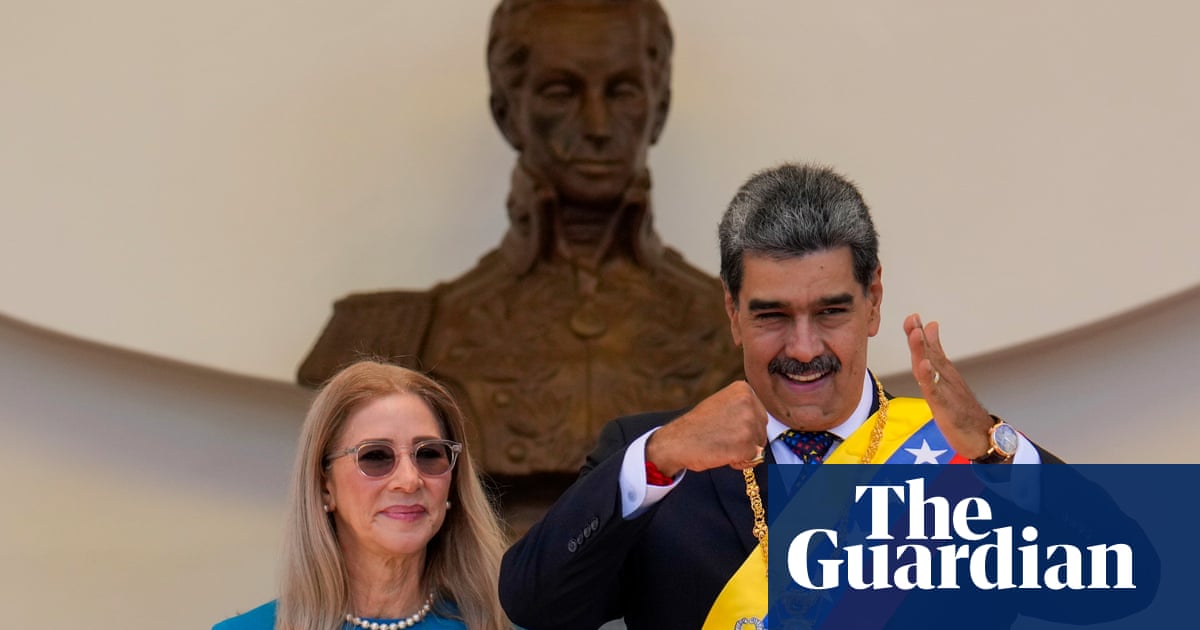With less than a month to go before his latest scheduled trial date, a self-admitted serial child molester and retired Roman Catholic priest from New Orleans remains competent to proceed with his oft-delayed rape and kidnapping case – albeit marginally as the 93-year-old grapples with Alzheimer’s dementia, according to his most recent medical evaluation.
A pair of doctors who evaluated Lawrence Hecker on 6 November made it a point to note that his illness is “a chronic and progressive disease”, suggesting additional delays beyond several already seen in the case create a risk that the clergyman declines into a state of legal incompetence preventing him from ever standing trial given his advanced age.
Hecker is tentatively scheduled to begin being tried on 3 December on charges of child rape, kidnapping and other crimes. He has pleaded not guilty to the counts first filed against him in September 2023. But as many as a dozen witnesses who allege enduring a range of sexually abusive acts by Hecker after he met them during their childhoods between the 1960s and 80s are prepared to testify against him.
Some of them had already flown in from out of town when New Orleans judge Benedict Willard abruptly postponed Hecker’s trial shortly before the start of jury selection on 24 September and recused himself from the case, citing a personality clash with its lead prosecutor.
The case was subsequently reassigned to judge Nandi Campbell.
Well before Hecker’s prosecution landed in Campbell’s courtroom, a series of medical evaluations determined he was “fragilely” competent to proceed toward trial because he generally understood the nature of the charges against him. But short-term memory problems linked to Alzheimer’s dementia could intermittently make it difficult for him to assist the attorneys defending him, another key element of the constitutional definition of legal competence.
Campbell ordered Hecker to undergo regular medical evaluations. During the most recent of those, which was described in a report dated 10 November, Hecker “was again engaged and responded to questions appropriately”, Drs Sarah Deland and Janet Johnson wrote.
He understood that he would go to prison “for a long time” – for the rest of his life, in fact – if he was eventually convicted as charged. He also expressed a willingness to work with his attorneys, whose names he knew, as well as an ability to deliver his version of events to them.
Nonetheless, a 28 October report from the physician in charge of caring for him at the long-term care facility where he is being held in custody warned that Hecker’s “mental status waxes and wanes” as it does for other people with Alzheimer’s dementia. “Some days, he is more alert than others”, the physician, Michael Russo, wrote, adding that Hecker occasionally demonstrates confusion.
The most recent report from Deland and Johnson declared Hecker “marginally competent” and mirrored the findings of evaluations in September and October.
Hecker’s lead attorney, Robert Hjortsberg, said Wednesday that he had read the latest medical report on his client. “If the doctors have determined him to be competent, then we will be ready for trial,” he said.
Campbell has set a final pair of preliminary hearing dates for 21 and 25 November, the second of which was scheduled for eight days before the tentative start of trial.
The victim at the center of Hecker’s pending trial maintains that he was an underage student at a Catholic high school to which Hecker had ties when the priest choked him unconscious and raped him in about 1975.
The accuser has said he told his school principal about the rape, which unfolded in a space in a church bell tower that had been converted into a weightlifting room. But the accuser has said the principal, Paul Calamari, never alerted police and instead arranged for him to undergo psychological treatment.
Hecker has denied that accusation. But in 1999, he did admit in writing to Catholic church leaders in New Orleans that he had molested or sexually harassed several other children whom he met through his work as a priest.
New Orleans’ Catholic archdiocese nonetheless allowed Hecker to return to work before retiring a few years later. The archdiocese then waited until 2018 to finally notify the public that Hecker – along with Calamari and dozens of their fellow clerics – had been the subject of substantial, credible child sexual abuse allegations that eventually drove the institution to file for bankruptcy protection in 2020.
Despite a seal on information pertaining to the bankruptcy, the Guardian managed to obtain a copy of Hecker’s 1999 admissions and exposed them to the public for the first time in June 2023.
The Guardian then shared the confession with the New Orleans CBS affiliate WWL Louisiana, and both outlets confronted Hecker on camera in August 2023. During that interview, Hecker verified his written confession was authentic.
About two weeks after the Guardian and WWL published that conversation, the New Orleans district attorney, Jason Williams, secured a grand jury indictment charging Hecker in connection with the complaint at the heart of his pending case.
It has been rare for Catholic clergymen in the city of New Orleans to be charged with – much less convicted of – crimes pertaining to the worldwide church’s child molestation scandal.
However, the law enforcement investigation into Hecker has since widened into an inquiry over whether the archdiocese ran a child-sex trafficking ring responsible for the “widespread … abuse of minors dating back decades” that was “covered up and not reported” to authorities, according to statements sworn under oath by police.
None of Hecker’s superiors have been charged with crimes in the unresolved case against him.

.png) 1 month ago
13
1 month ago
13













































